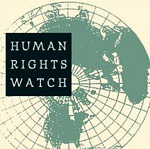“The new Armenian leader is facing serious challenges,” said Holly Cartner, Europe and Central Asia director at Human Rights Watch. He should take decisive steps to investigate the excessive use of police force and lift restrictions on freedom of assembly. Following his inauguration on April 9, Armenia’s new president Serzh Sargsyan should investigate last month’s violence and take other decisive steps to address the human rights crisis in the country,” Human Rights Watch said today. Human Rights Watch urged Armenia’s international partners to help the country meet its international commitments and get it on track to democratic development. “The new Armenian leader is facing serious challenges,” said Holly Cartner, Europe and Central Asia director at Human Rights Watch on the eve of the inauguration of the president of Armenia. “He should take decisive steps to investigate the excessive use of police force and lift restrictions on freedom of assembly.” Human Rights Watch recommends that Sargsian take the following steps to address the post-election human rights crisis in Armenia: investigate alleged excessive use of force by police on the morning of March 1, 2008 and later during the day; ensure that such investigation is in accordance with Armenia’s obligations under the ECHR by accepting international expertise and assistance to ensure independence and the public’s trust; stop arbitrary detentions and provide full due process rights to all detainees from the moment of their apprehension; investigate all allegations of ill-treatment during arrests and in police custody, and release those who have been arbitrarily detained for alleged participation in unlawful demonstrations; stop harassment of the press and opposition supporters, including detentions, repeated interrogations, dismissals, and usage of tax audit as a political tool for pressure and lift extensive restrictions on freedom of assembly by repealing the amendments to the public assembly law; bring the amended law into line with the European Convention on Human Rights; and follow recommendations provided by the Council of Europe’s Venice Commission and the Office of Democratic Institutions and Human Rights of the Organization for Security and Cooperation in Europe.

